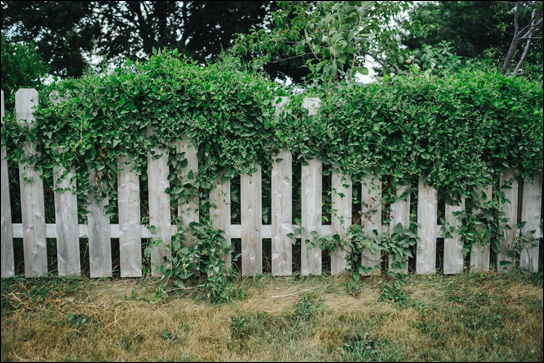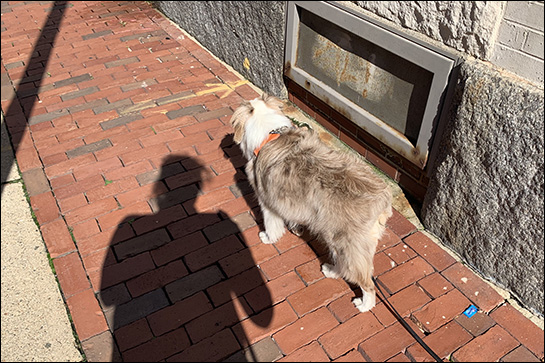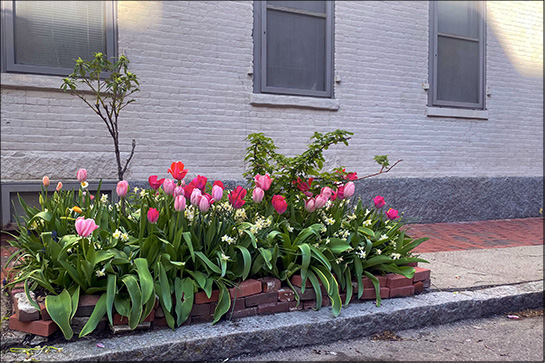Friends vs special interests: Which is more fulfilling?

Melissa wants you to know that she did not edit the post about how doctors are the most annoying of all the professional women I coach. I did not, in fact, write that in the post. Melissa points out that it’s what I was trying to write, but I got distracted piling on all the links she’d normally be taking out.
I tell her I think I’m at a turning point and maybe I want to just do research full time and stop writing stories about myself.
Melissa tells me I’m at a turning point but it’s a turn around point. She says it’s one thing if I want to compromise the integrity of my career, but she has an editorial reputation to uphold, so going forward she wants me to add a disclaimer to all the poorly written posts.
Seriously. This is what I’m dealing with.
Even though I’ve yelled a trillion times about how terrible grad school is, I thought maybe I need to get a PhD so I could do official autism research. I contacted professors I’d want to work with and a couple offered to just let me do my research in their lab. No going to grad school. So I am trying it, at Harvard, and I wish I didn’t love it so much, but I do.
Also, I really want the professor to be my friend. It’s way more fun to work with a friend.
I tell her Kate and William are coming to Boston for a royal climate extravaganza at the Kennedy Center. While William is busy being tone deaf about our philandering mafioso JFK, I was thinking my professor could invite Kate to the lab because Kate is very interested in early childhood stuff and I am very interested in Kate.
My professor said, “You are so funny,” which is, I’m afraid, the neurotypical way to say “no, never, forget it.” What if she’s neurotypical? Then she’ll never want to be my friend.
Or maybe she’s already my friend. Because people with autism only have two types of friends: childhood friends or friends you work with. The work with friends can be paid, like official autism research, or unpaid, like carpooling with another mom.
My friend Caitlin came to visit me in Boston, and I invited our other favorite friend. N. We will call her N. For nameless.
We have done a bunch of autism stuff together which of course I have published in various places, because it’s hard to get me to do anything if I can’t publish it. I think that’s why I have sleep problems — I’d sleep so much more if I saw a path to profit.
Whenever the three of us talk and I’m not taking notes I feel like blog posts are slipping through my hands. So I paid a film crew to be there while we talk. Caitlin was fine with that but not N. We were like how could you not be fine with it, you’ve done it a million times and you were great. So N did it and got so pissed at me that she stood up in the middle and left.
My first thought was, oh that will be such great video. Because that’s the kind of friend I am. A bad friend.
The video shows how poorly autistic women communicate and how long-term friendships between autistic women can detonate in seconds. It’s not that we don’t have social skills so much as we are missing that inner urge of preservation that serves to protect the friendship.
Caitlin says a friend is someone you project with because our special interests matter more to us than our friendships. Is project a verb for everyone or only for people with autism? I don’t know.
In fact, I think the main reason Caitlin puts up with me is because her special interest is alternative medicine and I get excited when she tells me tidbits like in the future we’ll detox our livers as a way to cope with all the crap in the environment.
Z hears us talking and says, “Wait. Mom. Is Caitlin an elderberry lord?”
Caitlin says, “I’ve never heard that but I totally want to be that.”
N’s special interest is perfectionism. Really. Perfectionism is an autism thing — primarily autistic women who get really good grades and (note to Melissa: wait for it) become doctors as the ultimate expression of their greatness and then they realize too late that perfectionism works for tests not life, and as their kids get older and older they start to panic when they can’t preserve their treasured sense of superiority and just like that they become singularly intolerable. Boom. That whole post in a one paragraph.
I didn’t write that in the other post because I want to be nice. Because I want to have friends. But I think neurotypical people have good friends because their special interest is friends. And I’ve had a lot of special interests in my life but it’s never once been friends.
But posting is a forever special interest. So Melissa tells me I can’t skip editing posts because she knows I don’t talk to people unless I work with them. And she’s right.



I am generally prepared for everything from a film crew to goats on the loose to P hiding in the corner of a restaurant from a meeting (all have happened) when I come to hang out.
Interesting friends come with interesting stories lol.
Well, there’s the noun ‘project’ that you turned into a verb. Then there is the verb ‘project,’ as in projecting your voice ;)
“Perfectionism is an autism thing — primarily autistic women who get really good grades and (note to Melissa: wait for it) become doctors as the ultimate expression of their greatness and then they realize too late that perfectionism works for tests not life, and as their kids get older and older they start to panic when they can’t preserve their treasured sense of superiority and just like that they become singularly intolerable.”
And suddenly find themselves turning 60, and lonely, and can’t stomach their sense of superiority anymore. Ugh. How to go on from here?
I think everyone wonders how to go on around that age. I think if I were really brave that’s what my topic would be on this blog. I am getting there…
Penelope
The best thing about you, for me, is that you can be a special interest but also I can convince myself that we could be friends. But, you know, I’m too awkward for that.
My five year old’s special interest is friends and I’ve actually been trying to determine if it’s an autistic special interest lol.
Juliana, in middle school my special interest became friends and figuring out how to keep them (i.e. trying to learn how to not be so autistically annoying). So yes, I think that’s possible!
Mine was that too!I never thought of it that way until you said it just now. I can’t believe how much time I spent studying friends and making plans for getting one or infiltrating a group. Such wasted time… nothing ever worked.
Penelope
I think trying to become a better person to be friends with works better than not trying not all.
I went to three different middle schools, one for each year. In sixth grade I made friends and then lost most of them due to being autistically unbearable. We moved out of the area, and I decided that in seventh grade, I would work really hard to be nicer and less annoying and weird. The kids I befriended that year ended up staying my friends through the entire year. In eighth grade I moved again and finally was able to find and retain a friend group that I kept through the year and through high school. Even hung out with most of them through college whenever they came back for summer and winter breaks.
Penelope, it seems to me you do have friends you’ve kept throughout the years, like Melissa and Caitlin. And even me (sort of)! It looks like you work really hard on your relationships, even though it’s very difficult. That effort’s taken you somewhere, as opposed to nowhere at all.
Great post! I love when people tell the truth
In my day we would hide our faces if someone pulled out a camera. Sometimes we had to shout their name and click when they turned to look.
I only became totally non-shy (no illusions) after I had to be the “talent” for over 300 still shots for a “build your own adventure” training film. I guess imperfect fashion models are like that too.
I heard once the younger generation has grown up on video recorders and cellular phones having photo and video, so they are less shy than we old folks. It would be nice to think so.
I got a lot less shy on camera when I realized that you can basically tell how old someone was by how up tight they are about having their picture taken.
I am really enjoying seeing millennials look old when they make themselves look perfect on Instagram. #schadenfreude
Penelope
As far as friendships, go, I had a friend who I thought was interesting. I was not interesting to her because I was interested in things that are interesting, and ultimately, though she is very creative, she is interested in people. So me getting more interesting wouldn’t interest her because I’m not the type to be interested in the people side of people. I thought this was all very interesting when I knew this friend. It still interests me that a person can be not interested in things that are interesting. She interpreted my desire to be friends as me being a nice person, but really, I thought she was interesting and that’s why I wanted to be her friend. It had nothing to do with me being nice.
Fascinating!
This has me thinking hard.
I might be the same. Never knew it.
You put it so well that it suddenly made perfect sense.
I don’t know whether I’m neurotypical or not (my daughter is autistic), but friends aren’t necessarily my special interest: relationships are. I learned somewhat late in life that everything wonderful and grand and heartbreaking and intense is a result of some kind of relationship. I even count relationships with pets under that umbrella. I don’t have to count somebody as a friend to value the interaction that I have with him/her. In fact, I get an enormous amount of value from simply saying hello or “high-fiving” other people I regularly encounter on my daily runs. I might not even recognize them if I passed them in a store, but when I see them on the sidewalk I get a deep sense of satisfaction.